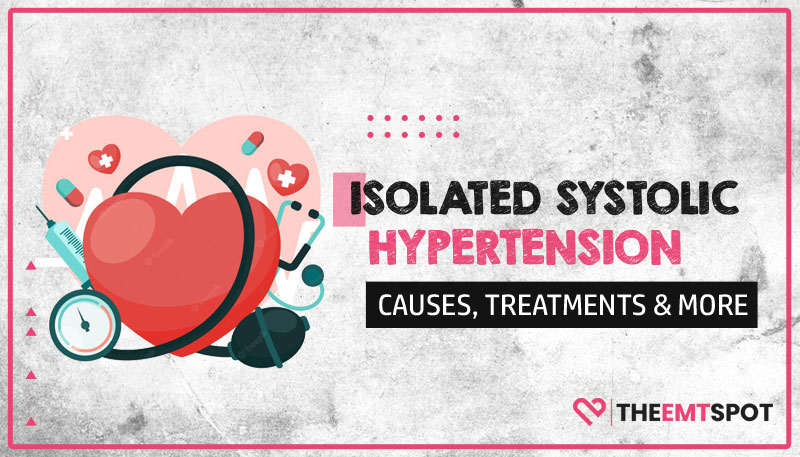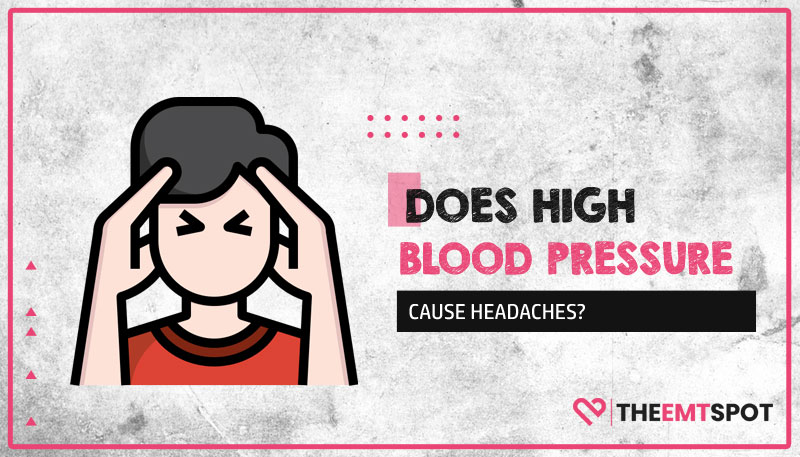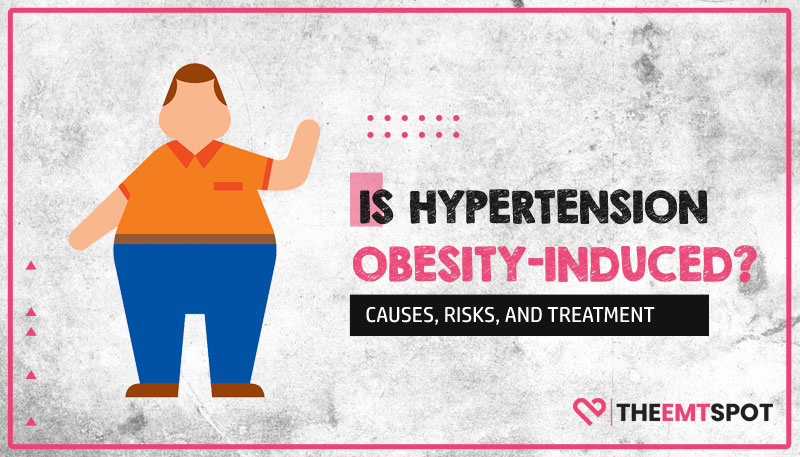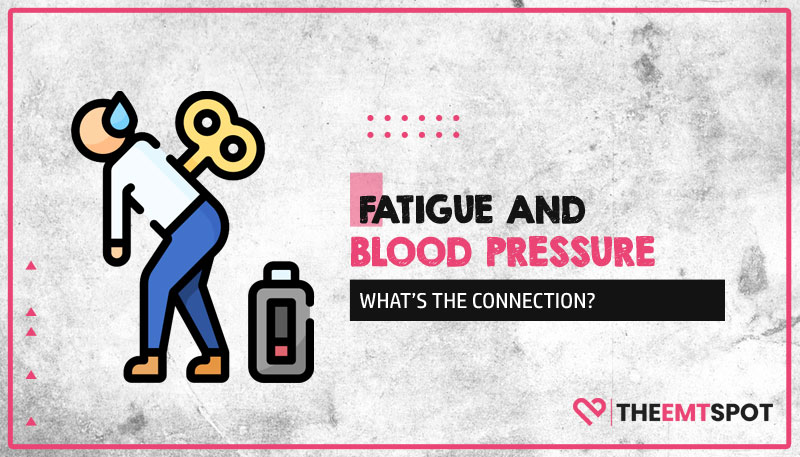Are you looking to know more about isolated systolic hypertension? Learn about its causes, effects, prevention, and treatments and lead a healthy life.

Quick Summary
- Isolated systolic hypertension is more prevalent in the elderly. If left untreated, it can turn life-threatening.
- A blood pressure reading detects isolated systolic hypertension. ECG or echocardiogram can be performed to rule out potential causes of HBP.
- Blood pressure can be lowered by losing weight, maintaining a healthy diet, exercising regularly, and in some serious cases, with medication.
If you’ve been diagnosed with isolated systolic hypertension (ISH), you may wonder what causes this condition and how it is different from other hypertension types.
While several factors can cause ISH, treatment typically focuses on lifestyle changes and medication.
This article will explore the causative factors, detection, treatments, and more about isolated systolic hypertension.
Contents
What Is Isolated Systolic Hypertension?
If you have isolated systolic hypertension, your systolic blood pressure (the top number in the BP reading) is high, but your diastolic blood pressure (the bottom number) is normal.
Stages of Isolated Systolic Hypertension
- Normal BP: 120/80 mmHg
- Elevated BP: 120-129/80 mmHg
- Hypertension Stage 1: 130-39/80-89 mmHg
- Hypertension Stage 2: 139 mmHg />89 mmHg
Isolated systolic hypertension is more common in older adults. This condition is also more prevalent in men than women. Untreated isolated systolic hypertension can lead to serious health problems like heart disease, stroke, and kidney failure.
What Are The Signs Of Isolated Systolic Hypertension?
If you have ISH, you may experience the following:
- Sweating
- Loud snoring
- Muscle weakness
- Tremor
- Thinning skin
Lowering blood pressure can alleviate the symptoms.
What Causes Isolated Systolic Hypertension?
As the human body ages, the blood vessels become less flexible and more rigid. This process is called arteriosclerosis and leads to a decrease in blood flow and an increase in blood pressure.
Other roots of origin include:
- Anemia: If an individual has anemia, he lacks red blood cells responsible for carrying oxygen to the body’s tissues. The condition results in ISH and serious damage to the heart.
- Hyperthyroidism: This is the case of an overactive thyroid.The condition occurs when more than necessary thyroid hormones are released, affecting the heart and circulatory system.
- Diabetes: Both type 1 and type 2 diabetes lead to imbalanced glucose levels and heart problems.
- Obstructive sleep apnea: In this condition, the throat muscles relax excessively and block the airway during sleep. This causes breathing to stop and start again with pauses. It can strain your cardiovascular system and lead to increases in blood pressure.
There are many other potential causes of ISH, such as:
- There are many other potential causes of ISH, such as:
- Smoking.
- Lack of exercise.
- Obesity.
- Excessive alcohol consumption.
- Certain conditions, such as kidney disease.
- Certain medications, such as cold remedies, birth control pills, and decongestants.
What Can Isolated Systolic Hypertension Cause?
Any condition, including high blood pressure, including ISH, can damage the inner lining of the arteries. This artery damage can be in the form of tears.
Moreover, LDL cholesterol build-up can occur in these damaged blood vessels, elevating BP.
Following this, oxygen transport is limited, and the chances of heart attacks increase. Straining can also be noticed in the blood vessels of other organs, which may lead to their failure.
How Is Isolated Systolic Hypertension Diagnosed?
To diagnose isolated systolic hypertension, a doctor needs to take a blood pressure reading.
This can be done in two ways: through a manual reading or an automatic machine.
They may also recommend additional tests. These include an electrocardiogram (ECG) or echocardiogram to rule out other potential causes of your high blood pressure.
Steps To Prevent ISH
The best way to prevent ISH is by maintaining a healthy lifestyle. This means eating a healthy diet, exercising regularly, and not smoking.
If you have risk factors for ISH, such as diabetes or kidney disease, it’s important to control these conditions with medication.
One can also take natural supplements to lower blood pressure. Be cautious and speak with your doctor before beginning or discontinuing any medication.
How To Treat Isolated Systolic Hypertension Naturally?
Losing excessive weight can help lower isolated systolic hypertension. One can do this by increasing physical activities or by incorporating walkinginto their daily routine.
Limiting alcohol intake is also necessary when one wants to lower their BP or ISH levels.
In severe cases, medicines may be prescribed to control this condition. Some of them include:
- Diuretics or water pills.
- Beta-blockers.
- Angiotensin-converting enzyme inhibitors.
- Angiotensin II receptor blockers.
- Renin inhibitor.
Conclusion
One can do several things to treat isolated systolic hypertension and improve overall health. This condition is observed more in the elderly than younger ones but can vary because of several factors.
While medications may be necessary to control your blood pressure, lifestyle changes and stress management can also help.
In addition, regular monitoring of your BP is essential to ensure that your treatment plan is working effectively. You can manage your ISH and enjoy a healthier life with the right care.





 Robin Backlund is a dedicated journalist and a medical student who has written several articles and essays exposing the falseness and hollowness of online resources in the medical science niche.
Robin Backlund is a dedicated journalist and a medical student who has written several articles and essays exposing the falseness and hollowness of online resources in the medical science niche.